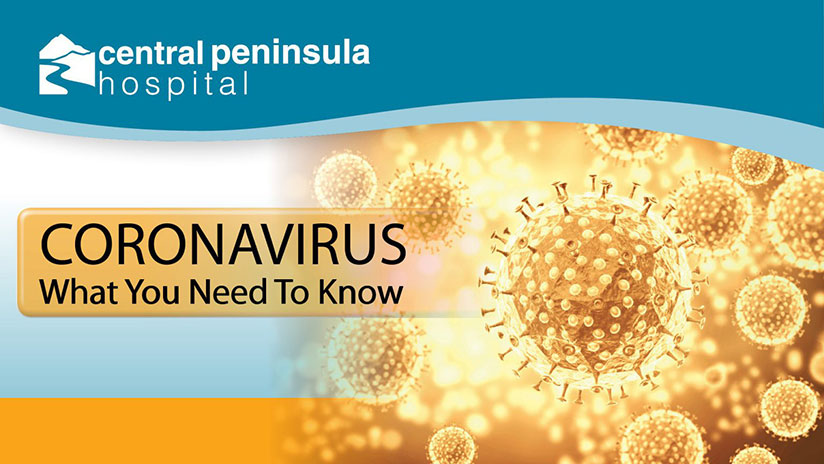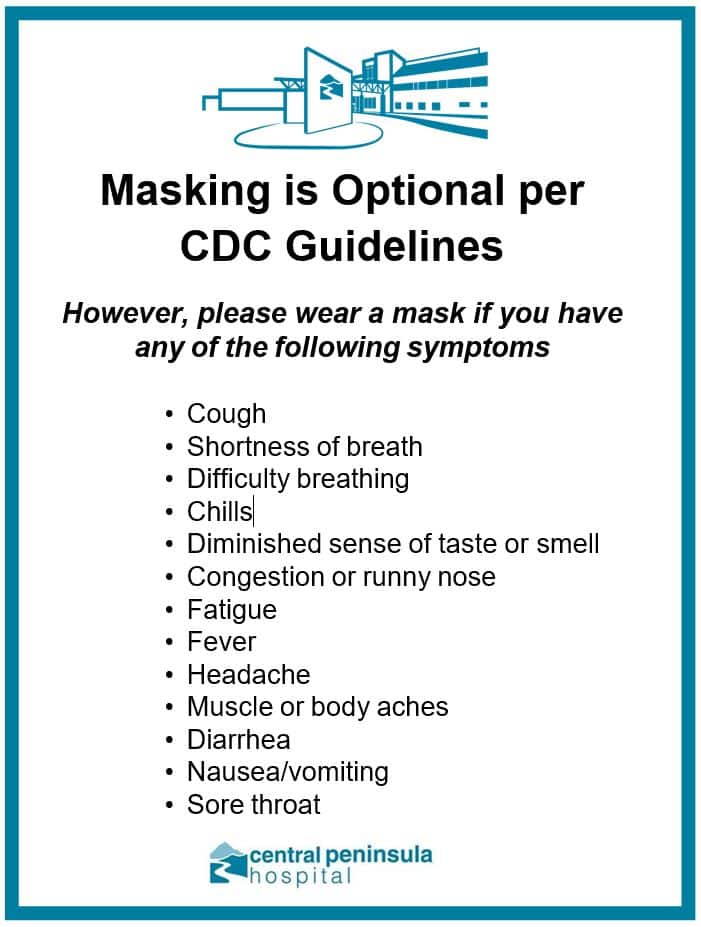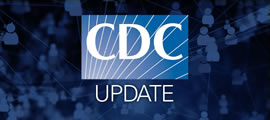CPH Coronavirus Information Page

Hospital Visitor Expectations and Precautions
- Masking is optional for asymptomatic visitors and patients
- Masking is required for symptomatic visitors and patients
- Visitors self screen for symptoms
- Masking is optional for asymptomatic visitors and patients
- Masking is required for symptomatic visitors and patients
- Visitors self screen for symptoms

| Main Mountain Tower Entrance | ||
| Monday – Friday | 6:00am | 6:30pm |
| Saturday | 8:30am | 5:00pm |
| Sunday | 8:30am | 5:00pm |
| Emergency Department Entrance | ||
| 24 hours | ||
| River Tower Front Entrance | ||
| Monday – Friday | 6:30am | 5:00pm |
| Saturday – Sunday | CLOSED |
Alaska Vaccine Information
Alaska Vaccine Information – Status, Eligibility, Appointment Scheduling
Alaska Vaccine Homepage – Information for all Alaskans
Vaccine Information from CDC
If You Feel Sick
Use home quarantine or home isolation:
- Take the Emory University Coronavirus symptom checker
- Stay home if you believe you have been exposed to the virus, even if you are not showing any symptoms.
- Stay home when you are sick, especially if you have respiratory illness symptoms. Currently, these symptoms are more likely due to seasonal influenza or other viruses than to a COVID-19 infection. Whether you have seasonal flu, the common cold, or something else, it’s important you stay away from others as much as possible when sick.
- If you have traveled to a country on the CDC list of level 2 or 3 travel health notices or an area in the United States with active community spread of COVID-19 and feel ill, call your health care provider before coming into the doctor’s office or emergency department.
- Avoid coming to the emergency department, unless you have a health emergency and/or you have been advised by your primary care provider to do so. This helps prevent the risk of spreading COVID-19 infection.
- Separate yourself from other people and animals in your home as much as possible while you are sick.
- Monitor yourself for fever, coughing and shortness of breath.
- Are you sick and self-quarantining? Get information and instructions to monitor yourself at home – CDC list of level 2 or 3 travel health notices
| Kenai Public Health | (907) 335-3400 |
| Central Peninsula Family Practice (Kenai & Soldotna) | (907) 714-4111 |
| Central Peninsula Internal Medicine Associates | (907) 262-8597 |
| Central Peninsula Hospital Emergency Department | (907) 714-4444 |
How to Protect Yourself
You can protect yourself from COVID-19 infection the same ways you protect against the common cold or seasonal flu.
- Sanitize your hands often for at least 20 seconds each time. Alcohol gel works well in most situations (like after coughing, sneezing, or blowing your nose), but hand washing with soap and water should be performed after going to the bathroom, before eating, or when your hands are visibly soiled.
- Cover your cough or sneeze with a tissue, then throw the tissue in the trash (putting a tissue on a table contaminates the surface of the table with germs).
- Avoid touching your eyes, nose and mouth.
- Stay home when you are sick.
- Routinely disinfect frequently touched objects and surfaces, using a cleaning spray or wipe.
- Follow your local, state and national authorities recommendations ie, reduced travel and congregating in large groups.
Stay Informed

Centers for Disease Control (CDC) Links:
State of Alaska DHSS Links:

World Health Organization Links:

